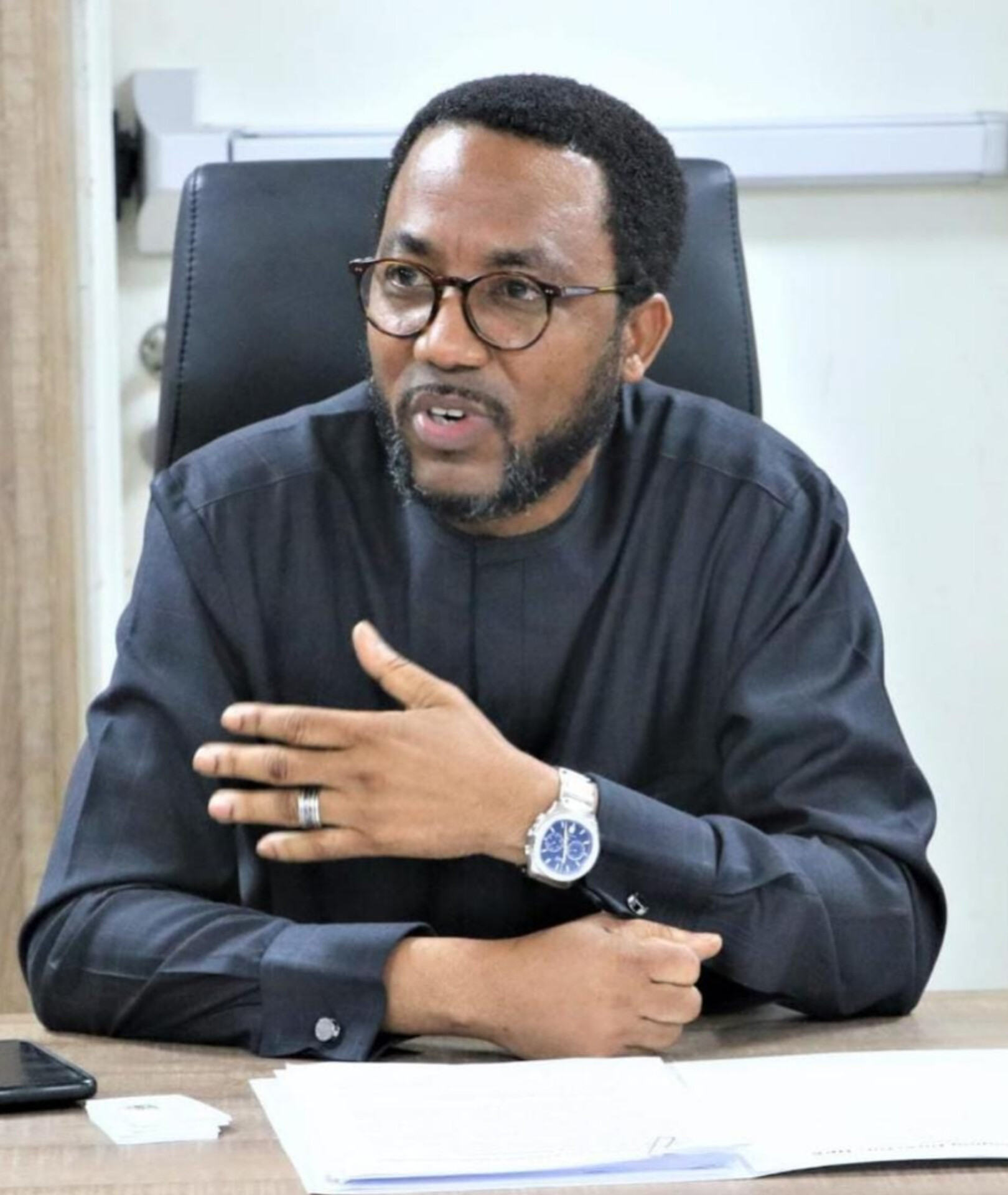By Feyi Adewale
The appointment of Mr. Mohammed Bello-Koko as acting Managing Director and Chief Executive Officer (CEO) of the Nigerian Ports Authority (NPA) on May 21, 2021 set the tone for the series of reforms that he initiated immediately he stepped in the saddle. The programmes and projects that crystallised from the stable of his acting leadership were consolidated upon after his appointment, in substantive capacity, was confirmed in February 2022. Between May 21, 2021 and now, the NPA on the watch of Bello-Koko has a number of achievements well tucked in its kitty. A glance at the list of achievement shows clearly that there is a new paradigm of public finance management, which is a common streak that runs through the entire gamut of the Authority.
Credible reports from the Authority indicate a consistency in operational excellence and a commitment by the management to sustain processes that aid it in the achievement of the same. In fact, the Authority’s operational excellence is pivotal to President Bola Ahmed Tinubu’s vison to unlock Nigeria’s marine and blue economy potential for economic recovery and growth. The NPA management, on Bello-Koko’s watch, has been surefooted in moving beyond rhetoric to value addition and delivery. The positive sentiments and strong narratives about the verifiable milestones are attributable to Bello-Koko’s pedigree as a shrewd finance sector player. His hands-on public sector experience as Executive Director Finance and Administration at the NPA was actually the substructure of the leadership and management superstructure that is writ large in administration of the NPA.

As soon as he assumed the leadership reins, Bello-Koko brought his gravitas to bear on the management team, providing guidance on how to leverage every available resource to leapfrog the Authority’s revenue to unprecedented levels. In pushing this through, Bello-koko had, since coming in the saddle as MD/CEO in 2021, deployed a three-pronged strategic approach that finds anchorage in people, technology, and infrastructure and equipment. For instance, the people strategic approach was a prompt response to the human resource imperative.The Authority in the period under review, secured the necessary approvals for the increase in salary of its employees which had stagnated for over fifteen (15) years. In fact, the combination of improved operational performance of the ports, tightening of collection mechanisms, plugging of income leakages and debt recovery resulted in unprecedented revenue generation and remittances to the Consolidated Revenue Fund (CRF) of the federation, with revenues steadily growing from N317bn in 2020, N333.5bn in 2021, to N361bn in 2022; and remittances progressively soaring from N80bn in 2020 to N93.4bn by financial year end 2022. It is instructive that the Authority is poised to surpass these levels in 2023 based on the sum of about N90bn already contributed into the CRF for January to August 2023, which is rooted in the prompt response to the human capital needs.
Confirming the effectiveness and efficiency of the Authority’s fresh initiatives, the Bureau for Public Service Reforms (BPSR), in its 2023 evaluation of Government agencies, adjudged the NPA as a level 5 “Platinum Level” Organization due to the provision of an enabling environment for exceptionally high quality of work in all essential areas of responsibility, resulting in an overall quality of work that is superior, exceptional, and unique. The NPA was intentional in deploying its strategic development and growth approaches in primary and prioritized areas of focus. Consider this: to stem capital flight in the face of dwindling foreign exchange earnings, the Authority reconstructed the dockyard training school, expanded the bridge simulator at the Port Training Institute and equipped it to international certification standards, thus making it unnecessary to send employees for training overseas, thereby saving the country FOREX that would be expended on foreign training.
Inextricably linked with or intertwined with the component of people or human capital management is the administration’s rare realization that there is a cost attached to every hour lost to industrial disharmony. This has motivated management’s sustained engagements with the Senior Staff Association of Statutory Corporations & Government Owned Companies (SSASCGOC: TUC), Maritime Workers Union (MWUN:NLC) and other ancillary sector unions, and the motivation has, in a utilitarian fashion, culminated in the industrial harmony being witnessed in the entire gamut of the NPA. Remarkably, the NPA, also in keeping with International Maritime Conventions (IMO) on Shore Leave for Seafarers, recently reconstructed and equipped the Mission to Seafarers (MTS) facility in Lagos to best-of-its-kind in the region. The MTS is a global index of port rating and national reputation.
The Authority has also been topnotch on the technology score, having realized and leveraged the linchpin of technology for port efficiency. Its sustained update of ports systems automation as well as the ongoing collaboration with the IMO for the development of the Port Community System (PCS) signposts the current Management team’s seriousness to advance Nigeria’s trade fortunes. The PCS which lays the groundwork for the National Single Window (NSW- the global benchmark of port efficiency), is a sector-specific automated system that eases information exchange between and among all parties that have activities related to the seaports. The NPA has been at the forefront of measurable actions steps necessary to operationalize the PCS. Although, the PCS, by its operational dynamics, requires multi-agency actions, which have been time consuming, the NPA, as Nigeria’s foremost trade facilitation platform, has through advocacy and collaborations fast-tracked the process and, as of date, completed the second phase of the consultancy under the technical guidance of the IMO.
The Authority has also enthroned transparency and eliminated opacity through the completion of the automation of port-ship reception and billing payment with the Revenue Invoicing and Management System (RIMS), Deployment of Electronic Manifest and Ship Entry Notice (ESEN), deployed electronic Traffic Management System (e-Call Up), operation of Oracle Financials and Oracle HR and the Authority is on track for the procurement of software for harbour automation as well as implementing an Authority-wide equipping and strengthening of Radio Signal Stations. Adjunct, to assure Domain Awareness Capability to enable the Authority guide and provide safety information to vessels within its channels and ports approaches in line with the Safety of Lives at Sea (SOLAS) convention, the Bello-Koko management partnered with the NLNG Ship Management Ltd (NSML) for the deployment of Vessel Traffic Service which at press time was at its conclusive stage.
The NPA management was also sharply-focused in its pursuit of infrastructure development and equipment procurement. This is quite understandable because ports sustainability is dependent on quality infrastructure and equipment. While awaiting the necessary approvals for the funding of the reconstruction of the aged Tin Can Island Ports Complex and rehabilitation of challenged aspects of all Port locations, the current Management team had, in the period under review, undertaken commendable steps in this direction in a number of ways, to wit: acquisition of first-of-its-kind in Africa marine crafts such as the recently inaugurated two units of Azimuth Stern Drive (ASD) 8213 model 80 Ton Bollard Pull Tugboats to enable the berthing of very large vessels of 300 metres LOA and above; equipping and operationalization of state-of-the-art Control Towers for Lagos and Tin can Island Port Complexes; and, procurement and deployment of Security Patrol Boats (SPBs) across all Port locations leading to enhanced channel security and address incessant attacks of vessels along the channels and at ports’ waterfronts, which has resulted in unprecedented cargo traffic in the Eastern Ports, especially Onne Port Complex.
The Authority also acquired more Harbour Crafts (Tugboats, Pilot Cutters) to eliminate delays associated with berthing and sailing of vessels and improve efficiency at the Ports; procured and installed navigational Aids and Buoys for Warri and Calabar Pilotage Districts, for proper channel marking and route mapping; completed the Road Network for the integration of Berth 9,10, &11 at Federal Ocean Terminal, Onne Port; procured and installed Marine Fenders Authority Wide, which is to boost the overall integrity of the quay facilities and serve as a precautionary measure to prevent any form of accident arising from direct vessel impact on the quay wall; completed consultancy services for the shore protection and rehabilitation of the Escravos breakwaters; as well as surveyed and mapped Warri Pilotage District from Fairway Buoy-Warri-Sapele up to Koko Port to the prescribed standards of the United kingdom Hydrographic Office ( UKHO) Charts, which had been left unattended for decades.
The list of the Authority’s achievements would appear inexhaustive, which speaks to the accountable, committed and shrewd leadership of Bello-Koko in a little over two years in office. The three-pronged transformational strategy of the Management of the NPA on his watch has coextensively further culminated in the actualization of new ports development, trade facilitation / promotion of export /revenue and employment generation and diversification of revenue sources. Indeed, in a bid to position Nigeria to optimize the comparative advantages that the nation’s maritime endowments as a littoral nation confers, the Authority provided the technical guidance and fast-tracked the approval processes responsible for the commencement of operations of Nigeria’s first Deep Sea Port- Lekki Deep Sea Port -which doubles as Nigeria’s first fully automated port at take-off. The Lekki Deep Sea Port laid the groundwork for the Federal Executive Council (FEC) approval of Badagry Deep Sea Port, Ondo Deep Sea Port, Snake Island and Koko Port in Delta State.
And through Trade Facilitation / Promotion of Export /Revenue & Employment Generation, the authority, on the watch of Bello-Koko, cognizant of the importance of balance of trade in strengthening the value of the Naira, certified and licensed ten (10) Export Processing Terminals (EPTs) in Lagos and Ogun states in the first instance. The EPTS were conceptualized to eliminate all procedural bottlenecks that hitherto made Nigerian exports uncompetitive in the international marketplace. Furthermore, the Authority in the period under review also successfully enforced the Stevedoring Regulations, which in addition to deepening professionalism and adherence to global best practices in the maritime sector, created jobs and wrested huge revenue from International Oil Companies (IOCs) that was hitherto lost.
Check out the others in the series of accomplishments, to wit: creation of new businesses and attendant job opportunities such as the Barge Operations services, which apart from reducing pressure on the roads, has grown into a N2bn annual generation business both from direct investment and accompanying externalities; licensing of additional truck parks to increase capacity of truck parks servicing the Lagos Ports, to achieve significant reduction in truck turn-around time due to successful implementation of the E-Call Up System; and, enforcement of Minimum Safety Standards on trucks, which stipulates that all trucks accessing the Ports are inspected, certified, and issued safety assurance identification; 65% reduction in number of accidents recorded, arising from improved standards of trucks operating within the Port premises; and standardization of operational procedures for different activities such as barging, private jetties, pilotage, vessel berthing/sailing etc.
In the face of scarce resources to bolster the national economy, the NPA management on Bello-Koko’s watch, diversified revenue sources in the context of the reinvigorated capacity optimization drive of the new Ministry of Marine and Blue Economy under the visionary ministerial direction of Mr Adegboyega Oyetola. And, in a bid to surpass the current revenue performance, Bello-Koko and his team are already looking beyond sole dependence on revenue from core port operations and have already put modalities in place to create jobs and add value to the national economy from the following alternative sources of revenue through Public Private Partnerships, to wit: Ports Independent Power Production; Bunkering Stations, Fallow Lands for Logistics/Real Estate, Fresh Water Provision, Ship Repairs and Maintenance, and Tourism and Hospitality, amomg others,
Appraised from whichever angle(s), it is clear that the NPA, under Bello-Koko, has been placed on a sound footing to guarantee growth, competitiveness, and future readiness to maximize opportunities inherent in the African Continental Free Trade Area (AfCFTA) Agreement.
Mr. Adewale, a maritime lawyer, writes from Lagos.


